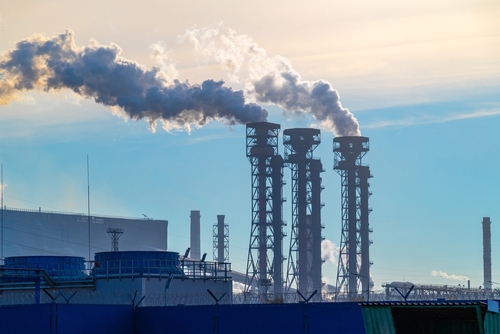Table of Contents
In recent years, the reduction of greenhouse gas emissions has become one of the main concerns worldwide. This is because rising global temperatures have catastrophic consequences, including rising sea levels, decreased biodiversity, and loss of arable land. In this context it is decisive that measures are taken to reduce greenhouse gas emissions. One of the areas in which engineering can make a significant contribution is in reducing emissions.
The phenomenon of the greenhouse effect has become dangerously unbalanced, endangering the sustainability of the environment. Due to greenhouse gas emissions (mainly CO₂, methane, and others), generating global warming as a consequence.

Different ways to reduce gas emissions
- Through the development and design of high-efficiency energy systems: Energy efficiency refers to the reduction of energy consumption without compromising the quality of service, which is achieved through the design and implementation of lighting, heating, and ventilation systems, and more efficient cooling.
- Use of Renewable Energy Sources: Renewable energy refers to energy that is produced from continuously regenerating natural resources, such as solar energy, wind energy, and hydroelectric power, among others.
- Design Implementation of carbon (CO₂) capture and storage systems: This technology involves the capture of carbon dioxide produced by industrial processes; as well as its storage in safe places such as underground or in geological formations.
- Innovation in the creation of new, more efficient and sustainable products, services, and processes: Engineering can contribute to innovation through research and development of new technologies and processes that reduce greenhouse gas emissions.
- Waste management and natural resources. The treatment of solid, liquid, and gaseous waste can reduce methane emissions and other greenhouse gases, likewise the improvement of the management of natural resources, such as water and forests, can help at the same time to promote the sustainability.
- Preserve fauna and ecosystems: Engineers can develop ecological environments for wildlife in any region. For example, there are professionals in this field who are constantly working to develop materials that are as close as possible to those found in nature, with the aim of preventing the degradation of natural habitats. Agricultural engineers are another excellent example of people dedicated to reducing the environmental impact caused by human activity, as they constantly work to develop farming techniques that limit the degradation of soil nutrients.
Conclusions
It is important to mention that reducing greenhouse gas emissions is not an easy task. It requires the collaboration of government entities, companies and citizens. Engineering can make a significant contribution to reducing greenhouse gas emissions, but collective action is needed to achieve significant results.
In this context, companies like Stress Engineering Services through its new division SES Renewables . They provide their knowledge and experience to ensure that renewable energy projects are executed safely, profitably and efficiently from concept to completion.
In conclusion, engineering is essential to reduce greenhouse gas emissions and combat climate change. From improving energy efficiency to developing renewable energy technologies and managing waste and natural resources, engineering plays a crucial role in the transition to a sustainable future. It is important that we continue to invest in the research and development of engineering technologies and solutions to meet the challenge of climate change and protect our planet for future generations.
References
Own source

